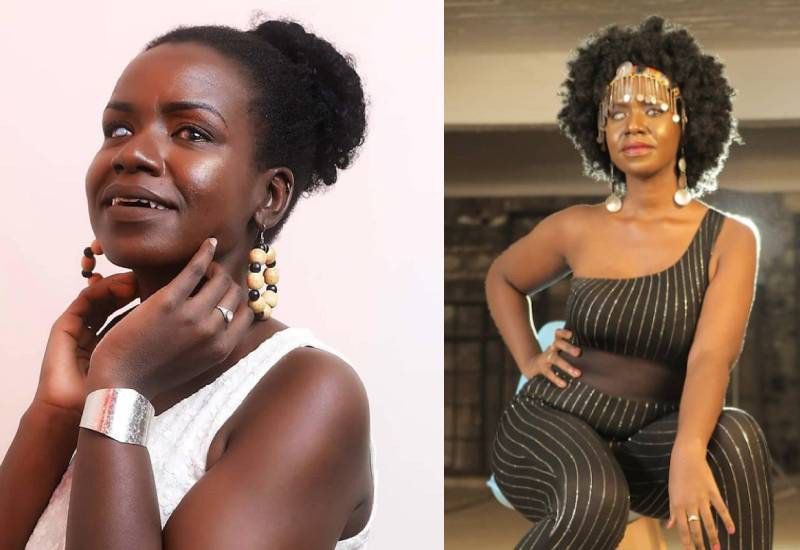
The golden rule is to treat people how you would like to be treated but for me, the platinum rule is to treat people how they want to be treated, not how you think they should be treated.
That is the mantra singer and songwriter Crystal Asige, now a nominated senator, lives by.
She first burst into fame when she was featured in Extravaganza, the hit track by Sauti Sol. At the time, she was signed to Sol Generation but left barely 10 months after she joined.
She has continued to sing and produce songs, which is what she loves best, since her exit.
On July 28 this year, she was among those proposed to be nominated to the Senate to represent persons with disabilities.
Following her nomination, she penned an appreciation post thanking her party and party leader for believing in her, terming her achievement as a big win for the community she represents.
"This week, Hon Raila Odinga chose to leave no Kenyan behind - no matter their ability or disability. I consider this Senate nomination by Baba and ODM an honour and count it a win for the communities I represent. A win for persons with disabilities, a win for women, and a win for the youth in Kenya," read her post.
On Thursday, Crystal was among the senators who were sworn in at the Senate.
- Suzie Wokabi: The making of a beauty empire
- Meet the fashion alchemy
- Telling African stories through film
- Mary J. Blige on a mission to help women discover their strength
Keep Reading
Before her nomination, the vocal and confident artiste was working on projects that have since yielded fruit.
Always optimistic, Crystal is a go-getter who will stop at nothing until she gets what she wants.
Besides music, Crystal is a diversity, equity and inclusion consultant, a disability rights advocacy, accessibility auditor and public speaker.
Crystal, who grew up in Mombasa, was diagnosed with glaucoma in her early 20s - a condition that made her lose her eyesight.
Her condition has not stopped her mission in life, as she is now an advocate for disability rights and wants to raise awareness of glaucoma in Africa as well as provide support for people living with the condition.
 The Standard Group Plc is a multi-media organization with investments in media platforms spanning newspaper print
operations, television, radio broadcasting, digital and online services. The Standard Group is recognized as a
leading multi-media house in Kenya with a key influence in matters of national and international interest.
The Standard Group Plc is a multi-media organization with investments in media platforms spanning newspaper print
operations, television, radio broadcasting, digital and online services. The Standard Group is recognized as a
leading multi-media house in Kenya with a key influence in matters of national and international interest.

